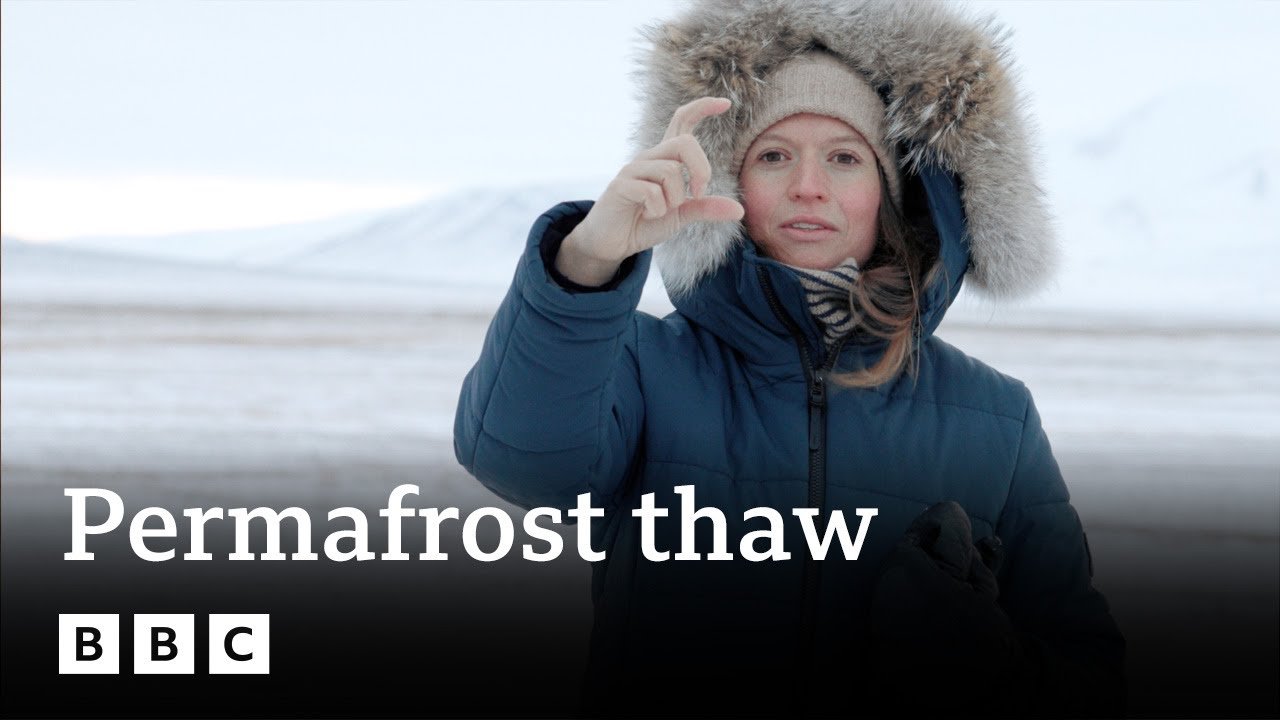- Permafrost covers approximately 11% of the Earth’s landmass, including half of Canada, two-thirds of Russia, and parts of the Tibetan Plateau.
- Permafrost consists of rock, sediment, or soil that has remained at or below 0°C for at least two consecutive years, with some areas being frozen for thousands to millions of years.
- The active layer above the permafrost thaws and freezes annually, supporting diverse ecosystems such as forests and tundras.
- Climate change is causing the Arctic to warm three to four times faster than the rest of the planet, leading to a deepening of the active layer by about 6 cm per year over the last decade.
- Thawing permafrost could potentially release ancient viruses and uncover archaeological finds like woolly mammoths but poses a greater threat by releasing stored carbon dioxide and methane.
- There is estimated to be four times more carbon trapped in permafrost than all human-generated CO2 emissions in modern history.
- The thawing of permafrost affects local communities, causing infrastructure damage and altering landscapes, which significantly impacts the way of life for people living in these regions.
- Adapting to and mitigating the effects of permafrost thaw requires global efforts to reduce climate warming and building resilient communities capable of withstanding changes.
The British Broadcasting Corporation is a British public service broadcaster headquartered at Broadcasting House in London. Originally established in 1922 as the British Broadcasting Company, it evolved into its current state with its current name on New Year’s Day 1927.
AllSides Media Bias Rating: Center
https://www.allsides.com/news-source/bbc-news-media-bias
Official website: https://www.bbc.com/
Original video here.
This summary has been generated by AI.

Leave a Reply